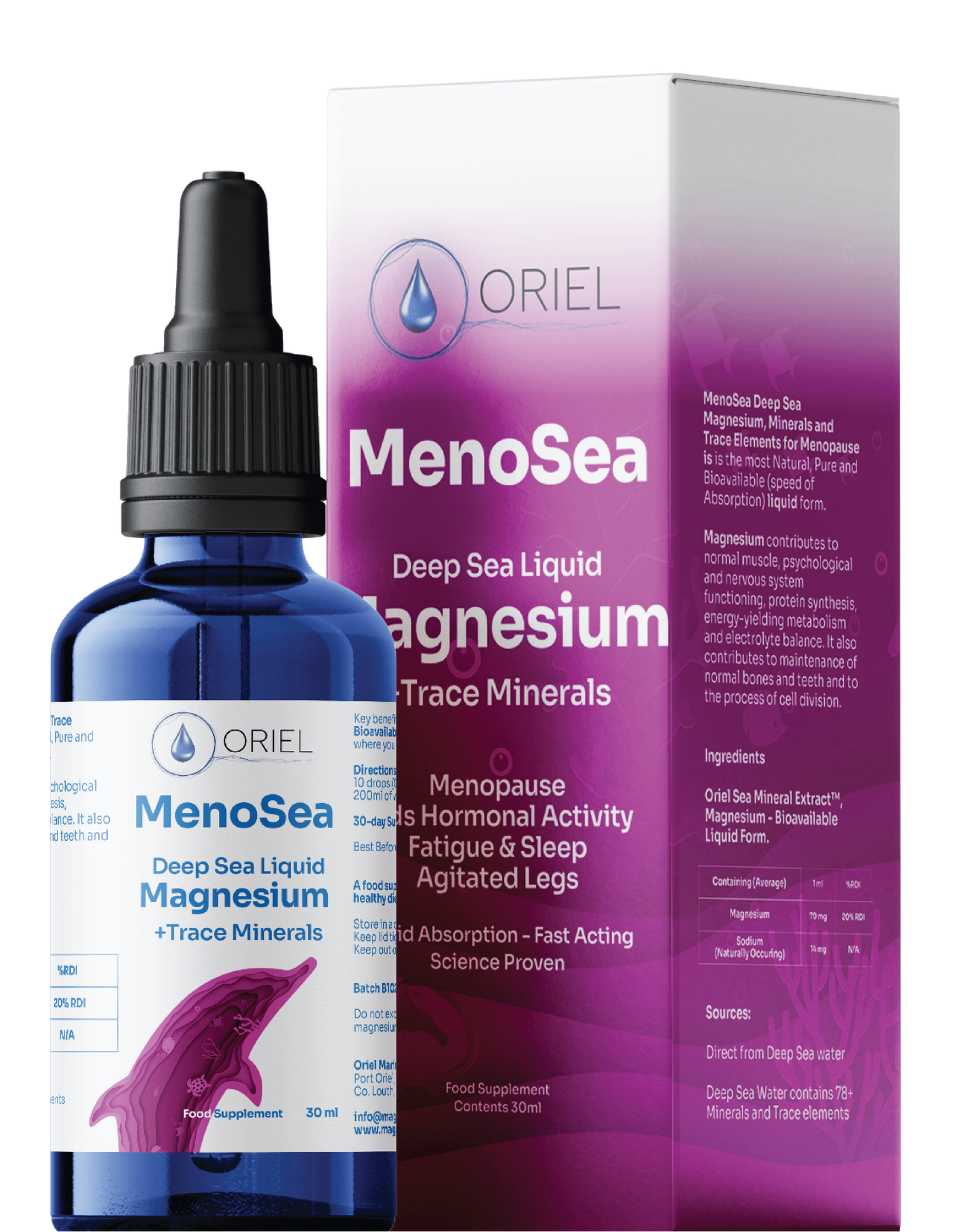
Magnesium: A Vital Mineral for Bone Health During Menopause
Share

Menopause is a significant phase in every woman’s life. It brings about many physiological changes, including a decline in estrogen levels. This hormonal shift not only triggers symptoms like hot flashes and mood swings but also brings about changes that can severely affect bone health. During this stage, taking care of your bones is more important than ever, and one mineral that plays a critical role in this regard is magnesium. Let’s explore why magnesium is essential for bone health during menopause and how you can ensure you’re getting enough of it.
How does Menopause Influence Bones?
As menopause approaches, the body undergoes many physical and hormonal changes. Estrogen is a hormone that plays a vital role in maintaining bone density. With the reduction in estrogen levels, women become more susceptible to osteoporosis. It is a condition where bones become weak and brittle, leading to an increased risk of fractures and osteoporosis. Bone loss can be accelerated if vital minerals such as calcium and magnesium are not maintained at adequate levels.
Osteoporosis: A Common Health Concern During Menopause
Osteoporosis is a condition characterised by bone weakness. A decline in estrogen levels makes bones more fragile and prone to fractures as they become less efficient at maintaining bone density.
Among other essential minerals, magnesium supports the metabolism of calcium and vitamin D, which are vital for bone health. When magnesium levels are low during menopause, the risk of osteoporosis increases, emphasising the importance of adequate magnesium intake.
The Connection Between Magnesium and Improved Bone Health
The significance of magnesium is often overshadowed by calcium when it comes to bone health, but this mineral plays a crucial role in maintaining strong bones. About 60% of the body’s magnesium is stored in the bones, and it helps regulate calcium levels and activate vitamin D, ensuring calcium gets deposited into the bone matrix where it’s needed most.
Moreover, magnesium controls calcium levels in blood and bones through the regulation of parathyroid hormone (PTH). A lack of magnesium causes PTH levels to fluctuate, resulting in excessive calcium loss from bones. This further reduces bone density and increases fracture risk in women.
Bone Formation Through Osteoblasts
Osteoblasts are the cells responsible for bone formation, and magnesium is essential for their proper functioning. A drop in oestrogen during menopause may inhibit osteoblast activity, which could slow down bone formation.
Magnesium assists osteoblasts by controlling calcium metabolism and ensuring calcium is deposited in bones rather than wasted. Inadequate magnesium levels prevent osteoblasts from efficiently generating new bone tissue, which exacerbates the loss of bone density.
Magnesium Deficiency Risk in Bones During Menopause
During menopause, the body’s ability to absorb magnesium decreases, largely due to declining estrogen levels. Estrogen helps with the efficient absorption of magnesium in the intestines, so when estrogen drops, so does magnesium absorption. Magnesium deficiency may exacerbate menopause symptoms such as fatigue, irritability, anxiety, and, most importantly, the loss of bone density.
As magnesium absorption decreases during menopause, it can profoundly impact overall health, particularly bone strength. The body cannot properly absorb calcium without adequate magnesium. When this mechanism is disrupted, bones can become more prone to fractures, increasing the risk of osteoporosis in postmenopausal women.
Osteogenesis in Bone Development
Osteogenesis is the process of new bone formation. It is essential for maintaining bone strength throughout life, especially during menopause, when bone loss tends to accelerate. Magnesium is crucial for osteogenesis because it enhances vitamin D activation and regulates the hormones that promote bone growth.
Osteogenesis is impaired in the absence of magnesium, which increases fracture risk. However, proper magnesium intake can mitigate the effects of menopause on bone health.
Strengthen Your Bones With Oriel Magnesium MenoSea
Menopause can often impact physical and mental well-being by disrupting daily life operations. Weak bone health can make it difficult to move around and do basic chores. The Oriel Magnesium Menosea is specially formulated to address menopausal symptoms and alleviate them.
With these stress-free magnesium drops, you can strengthen your bones and improve your health. Simply add them to water and conveniently have your dose of magnesium anywhere, even if you are occupied with several tasks. Order your Oriel Magnesium Menosea today and build your bone health.
Frequently Asked Questions
How does magnesium help prevent osteoporosis in menopausal women?
Magnesium improves bone quality by enhancing calcium absorption and regulating hormones that affect bone formation. It reduces the risk of osteoporosis by ensuring proper calcium utilisation in bones.
How much magnesium should I consume during menopause?
The recommended daily intake of magnesium for women is about 320 mg, but some experts suggest a higher intake for menopausal women to support bone health. It's best to consult a healthcare provider for personalised recommendations.
Can magnesium help with other menopausal symptoms?
Yes, magnesium has additional benefits during menopause. It can improve sleep quality, reduce muscle cramps, and alleviate stress and mood swings. It may also help regulate blood pressure and support heart health.

